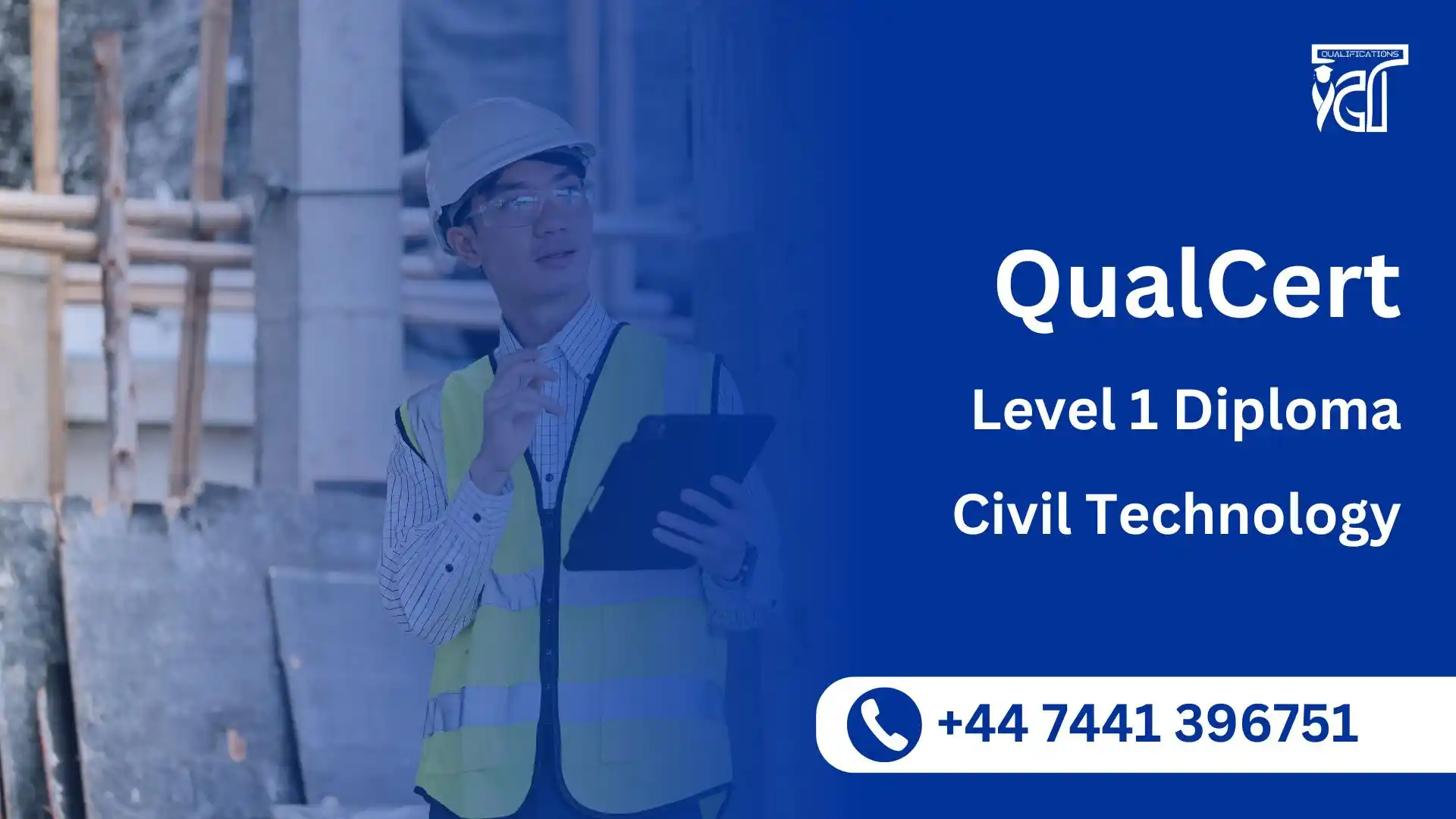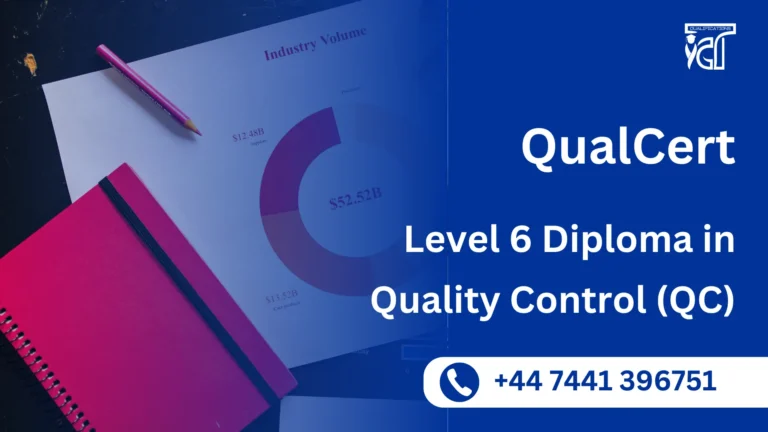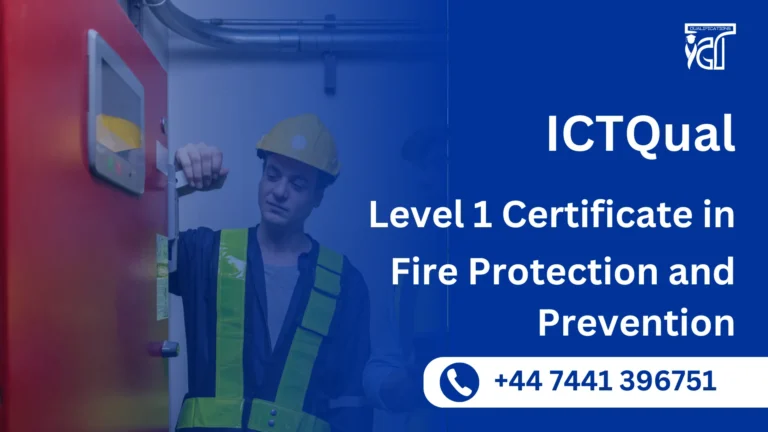The QualCert Level 1 Diploma in Civil Technology Course is designed to provide learners with essential knowledge and practical skills related to the planning, design, construction, and maintenance of infrastructure projects. This comprehensive program covers key areas of civil engineering technology, including construction materials, structural systems, surveying, site preparation, and environmental considerations.
Participants will gain an understanding of the technical and theoretical foundations that drive modern construction practices, as well as hands-on skills necessary for working with tools, equipment, and construction processes used in residential, commercial, and public infrastructure projects.
Whether you are looking to start a career in the construction industry or enhance your technical abilities in civil engineering support roles, this course prepares you to contribute effectively to building safe, efficient, and sustainable structures.
QualCert Level 1 Diploma in Civil Technology
The QualCert Level 1 Diploma in Civil Technology is a 30-credit qualification with a Total Qualification Time (TQT) of 180 hours, including 120 Guided Learning Hours (GLH). This course is thoughtfully designed to provide targeted and efficient skill development in the field of Civil, offering learners a solid foundation to build their expertise.
| Unit Ref# | Unit Title | Credit | GLH | TQT |
| QC02001 – 1 | Introduction to Civil Technology | 5 | 20 | 30 |
| QC02001 – 2 | Construction Materials | 5 | 20 | 30 |
| QC02001 – 3 | Technical Drawing Basics | 5 | 20 | 30 |
| QC02001 – 4 | Health, Safety, and Environment | 5 | 20 | 30 |
| QC02001 – 5 | Basic Surveying | 5 | 20 | 30 |
| QC02001 – 6 | Mathematics for Civil Technology | 5 | 20 | 30 |
GLH (Guided Learning Hours) and TQT (Total Qualification Time) are terms commonly used in vocational qualifications to help define the amount of time a learner is expected to spend on their studies.
1. GLH (Guided Learning Hours)
GLH refers to the number of hours a learner spends being directly taught, supervised, or supported during their course. This includes the time spent in activities such as:
- Classroom instruction
- Practical workshops
- One-on-one tutoring or mentoring sessions
- Online learning sessions with tutor support
In other words, GLH represents the time that learners are actively engaged with their instructors or learning activities.
2. TQT (Total Qualification Time)
TQT represents the total amount of time a learner is expected to invest in completing a qualification, including:
- GLH (Guided Learning Hours): Time spent on direct learning, as explained above.
- Self-Directed Learning: This includes time spent on independent study, research, assignment completion, preparation for exams, and any other work the learner does outside of direct teaching hours.
TQT is a broader measure that includes all the time required to achieve the qualification. It helps learners and employers understand the overall commitment required for the qualification.
Key Differences Between GLH and TQT:
- GLH focuses on direct learning with guidance or supervision.
- TQT includes GLH as well as independent study time and other learning-related activities.
Example:
If a qualification has a TQT of 600 hours and a GLH of 250 hours, it means the learner should spend 250 hours in direct learning (classroom, online, or tutor-led sessions) and 350 hours on independent study or research.
Upon successful completion of the QualCert Level 1 Diploma in Civil Technology, students will:
Introduction to Civil Technology
- Understand the basic concepts, principles, and scope of civil technology.
- Identify the key roles and responsibilities of professionals in the civil engineering field.
- Explore the significance of civil technology in infrastructure development and its societal impact.
- Familiarize with essential tools, equipment, and terminology used in civil technology.
Construction Materials
- Identify and classify various construction materials such as concrete, steel, timber, and aggregates.
- Understand the properties, uses, and limitations of common construction materials.
- Demonstrate knowledge of material selection based on project requirements and environmental considerations.
- Learn proper handling, storage, and testing techniques for construction materials.
Technical Drawing Basics
- Develop fundamental skills in interpreting and creating technical drawings.
- Understand the use of scales, symbols, and dimensions in engineering drawings.
- Familiarize with basic drawing tools and techniques for manual and computer-aided drafting.
- Create simple 2D sketches and diagrams relevant to civil technology projects.
Health, Safety, and Environment
- Recognize the importance of health and safety standards in construction projects.
- Identify common workplace hazards and learn methods to mitigate risks.
- Understand environmental regulations and sustainable practices in civil engineering.
- Develop an awareness of personal protective equipment (PPE) and its proper usage.
Basic Surveying
- Understand the principles and significance of surveying in civil technology projects.
- Learn to use basic surveying tools such as measuring tapes, levels, and theodolites.
- Conduct simple field measurements and data collection tasks.
- Interpret and analyze survey data for use in project planning and design.
Mathematics for Civil Technology
- Apply fundamental mathematical concepts to solve civil engineering problems.
- Understand measurements, geometry, and trigonometry as they relate to construction projects.
- Perform calculations for area, volume, and material quantities.
- Develop problem-solving skills using mathematical reasoning and techniques relevant to civil technology.
Benefits of the QualCert Level 1 Diploma in Civil Technology:
Comprehensive Industry Knowledge
Gain a solid understanding of construction principles, structural systems, materials, and processes essential for civil engineering and construction projects.
✅ Practical Skills Development
Learn hands-on skills in surveying, site preparation, concrete work, and construction safety, preparing you for real-world applications in the field.
✅ Enhanced Career Opportunities
Increase your employability in a wide range of industries, including construction, infrastructure development, engineering consultancy, and project management.
✅ Foundation for Further Study
Serve as a stepping stone for advanced studies in civil engineering, architecture, project management, or building sciences.
✅ Focus on Sustainability and Safety
Understand sustainable construction practices and environmental considerations, promoting responsible building and design.
✅ Adaptable to Various Roles
Equip yourself for diverse roles such as construction technician, site supervisor, civil engineering assistant, or project coordinator.
✅ Problem-Solving and Critical Thinking
Develop strong analytical and problem-solving abilities essential for addressing on-site construction and engineering challenges.
This Civil Technology Course is ideal for individuals who:
Anyone passionate about sustainable construction methods and modern building technologies aiming to contribute to environmentally responsible infrastructure development.
Aspire to build a career in the construction or civil engineering industries, including roles such as construction technicians, site supervisors, or engineering assistants.
Students or recent graduates seeking to gain practical knowledge and technical skills in civil technology to enhance their employability.
Construction workers or tradespeople wishing to upgrade their skills and transition into supervisory, technical, or design support roles.
Individuals with an interest in infrastructure development, including roads, bridges, buildings, and public facilities.
Project managers or site coordinators who want to understand the technical aspects of civil construction processes.
Engineering or architecture professionals looking to expand their knowledge of on-site construction practices and materials handling.
Entry Requirements
Register Now
Qualification Process
Qualification Process for the QualCert Level 1 Diploma in Civil Technology
- Self-Assessment:
Begin by evaluating your eligibility to ensure you meet the qualification requirements, including work experience, knowledge, and language proficiency. - Registration:
Complete your registration by submitting the required documents, including a scanned copy of a valid ID, and paying the registration fee. - Induction:
An assessor will conduct an induction to confirm your eligibility for the course and explain the evidence requirements. If you do not meet the criteria, your registration will be canceled, and the fee will be refunded. - Assignmnets & Evidence Submission:
Provide all assignmnets and the necessary evidence based on the assessment criteria outlined in the course. If you are unsure of the required evidence, consult with the assessor for guidance on the type and nature of evidence needed. - Feedback and Revision:
The assessor will review your submitted evidence and provide feedback. Evidence that meets the criteria will be marked as “Criteria Met,” while any gaps will be identified. You will be asked to revise and resubmit if needed. - Competence Evidence:
Submit final evidence demonstrating that all learning outcomes have been met. This evidence will be marked as “Criteria Met” by the assessor once it is satisfactory. - Internal Quality Assurance (IQA):
The Internal Quality Assurance Verifier (IQA) will review your evidence to ensure consistency, quality, and compliance with standards. - External Verification:
The IQA will submit your portfolio to QualCert External Quality Assurance Verifiers (EQA) for final confirmation. The EQA may contact you directly to verify the authenticity of your evidence. - Certification:
Upon successful completion of all checks, QualCert will issue your official certificate, confirming that you have attained the QualCert Level 1 Diploma in Civil Technology.







